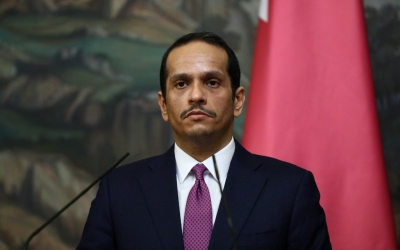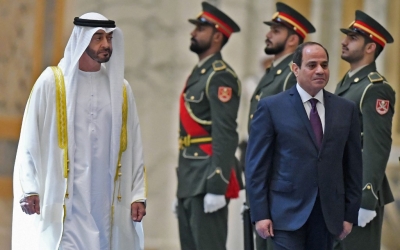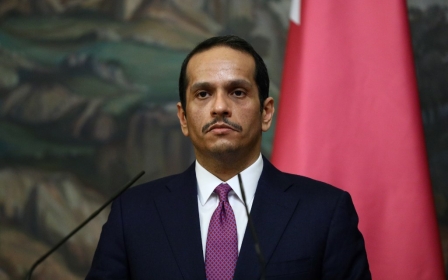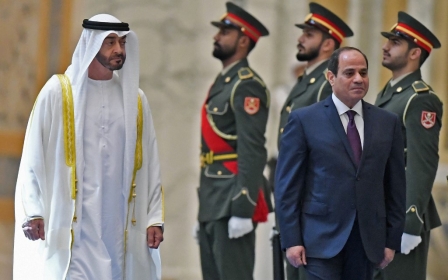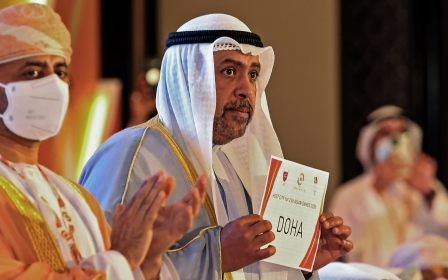Qatar tells UN Security Council of repeated Bahraini violations of its territory
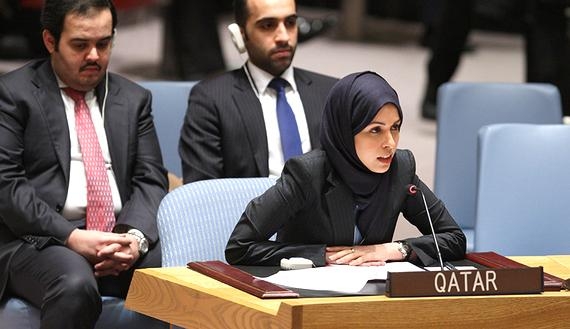
Qatar’s Foreign Ministry informed the UN Security Council on Friday that Bahraini naval boats had violated its territorial waters in late November, ahead of a Gulf Cooperation Council (GCC) summit on 5 January.
It was the second time in less than a week that Doha had approached the UN about alleged Bahraini violations of its territory, and the recent strain with Bahrain may disrupt efforts to end a long-term blockade against Qatar by the kingdom and other Gulf states.
On 29 December, Doha notified the UN Security Council that Bahraini military aircraft had penetrated its airspace over territorial waters on 9 December.
Alya bint Ahmed Al Thani, the Qatari permanent representative to the UN, called in a statement on Friday for an end “to the tendentious Bahraini violations”.
“The illegal entry of the Bahraini military boats to the territorial waters of the State of Qatar without a permit constitutes a violation of the sovereignty and territorial integrity of the State of Qatar and a threat to its security,” Thani wrote in a letter to top UN officials.
Bahrain is one of four countries that imposed a blockade against Qatar in June 2017, along with Saudi Arabia, the United Arab Emirates (UAE) and Egypt, sparking a diplomatic crisis in the Gulf.
'Attempt to fabricate incidents'
On 12 December, Qatar arrested a Bahraini citizen and two foreigners after their vessel entered its maritime waters.
Thani also wrote that Bahraini acts are an “attempt to fabricate incidents that could destabilise, increase tension … and threaten peace,” in the Gulf, a crucial region for international oil supplies and borders several countries.
Bahrain has denied any violations of Qatar's sovereignty regarding the December claim.
The kingdom’s foreign ministry said that two of its F-16 planes had been on a military drill in Saudi Arabia on 9 December with two US fighter jets and that they had headed back over Saudi territories at 15:50 local time to land at the Isa air base.
“The ministry affirms that this is the usual exit route from the military drill area towards the airspace of the Kingdom of Bahrain and that on their way back, the aircraft have not used Qatari airspace, as the Royal Bahraini Air Force fighters always perform their sorties in a professional manner, making sure not to penetrate the borders of other countries,” the ministry said.
Deal 'close'
In recent weeks, there have been positive statements from officials in Saudi Arabia, the UAE, Egypt and Qatar towards putting an end to the Gulf crisis.
Qatar's Foreign Minister Sheikh Mohammed bin Abdulrahman Al Thani said there were no obstacles to resolving the crisis and also called for a dialogue with Iran.
Saudi Foreign Minister Prince Faisal bin Farhan also said a deal to end the Qatar blockade was “close”, which was followed by Egyptian and Emirati officials welcoming Kuwaiti efforts to settle the crisis in December.
Saudi Arabia led its Gulf allies to cut ties with Qatar in June 2017, saying it was too close to Iran and that it was funding radical movements, charges Doha staunchly denies.
The four nations subsequently expelled Qataris residing in their countries, closed their airspace to Qatari aircraft and sealed their borders and ports, in some cases separating mixed-nationality families.
In 2001, Qatar and Bahrain settled a border dispute in the International Court of Justice.
Middle East Eye delivers independent and unrivalled coverage and analysis of the Middle East, North Africa and beyond. To learn more about republishing this content and the associated fees, please fill out this form. More about MEE can be found here.


